Thanks for your support! If you make a purchase using our links in this article, we may make a commission. And, as an Amazon Associate, I earn from qualifying purchases. See the full disclosure here.
What is the difference between a motorhome RV (recreational vehicle) and a camper? First of all, the term RV is interchangeable and is really anything that is used for camping. A motorhome is generally an RV that is drivable which includes anything from large class A types to camper vans and truck campers.
A camper is a general term that refers to any pull-type RV which includes travel trailers or fifth wheels, truck campers, pop-up campers, and any variation of those. Most generally, drivables are considered motorhomes, and other types are referred to as campers but they are all considered RVs or recreational vehicles. See below for more detailed descriptions with pictures and a YouTube video!
Class A Motorhomes:
Class A motorhomes are generally defined as vehicles with strong frames built on either a commercial bus chassis, a commercial truck chassis, or a motor vehicle chassis. These luxury busses are top of the line and what many RVers dream of attaining. Depending on the model, the largest of these RVs can sleep up to 10 people and have a lot of storage.
Class A Motorhomes are relatively safe and easy to drive and don’t require any special license as long as the vehicle is under 26,000 pounds. The fuel economy for these behemoths is around 8-10 mpg. These RVs can also be up to 45 feet long and may not fit in every RV park. Some state and national parks have length limits as well.
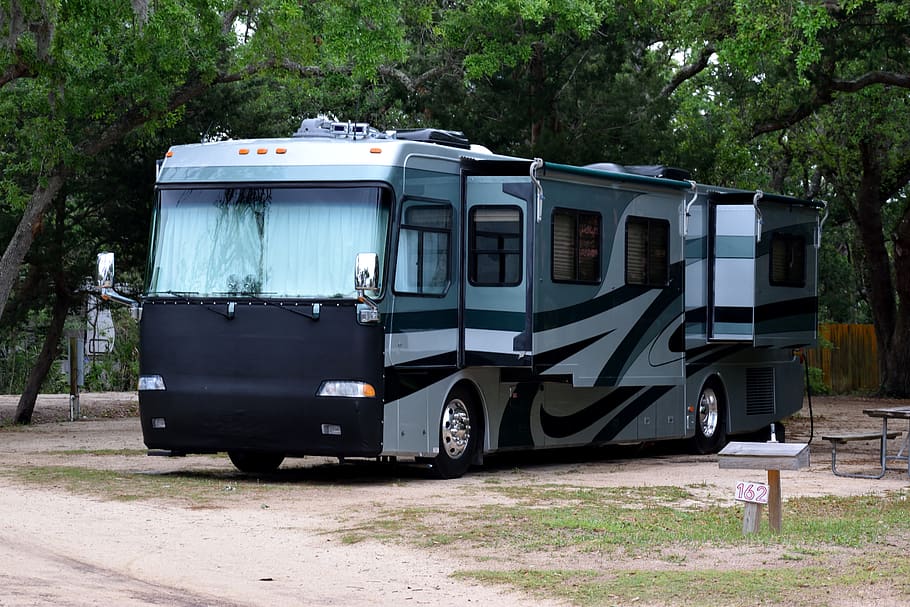
Class B Motorhomes:
Class B motorhomes are very different from other types of motorhomes. RVs, and campers. Class Bs are vans that have been converted to have living space instead of seats in the back. Depending on the specific models, they may or may not be self-contained with toilets and showers.
The advantage to Class B Motorhomes, also known as campervans, is they are easy to drive, get decent gas mileage, and they’re maneuverable in RV parks and on narrow roads. With this type of RV, space is at a premium, but some can sleep up to four people. If you just want to head down the road without hassle, this is probably the rig for you.
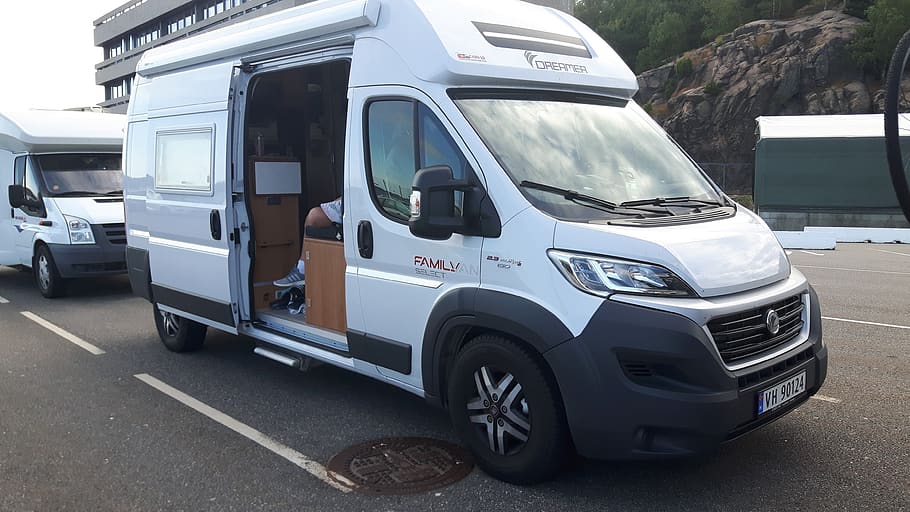
Class C Motorhomes:
A Class C motorhome is built on a pickup truck chassis. The front structure looks like a pickup truck and generally has a bed over the cab. These are self-contained RVs and generally can sleep up to 8 people, depending on the size. They are easy to drive and get gas mileage of 9-12 mpg. These are less expensive than Class A’s but have more storage than a Class B and can be up to 41 feet in length.
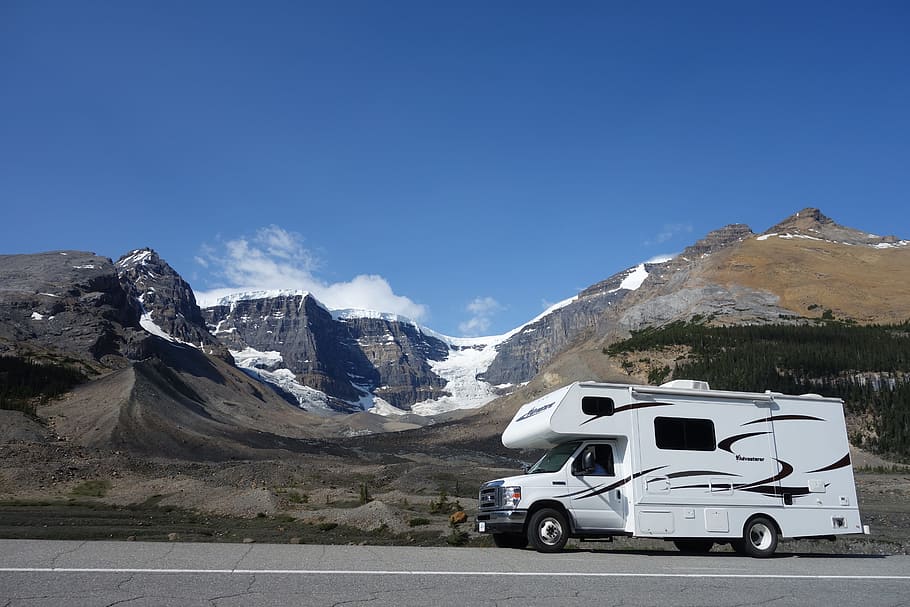
Super C Motorhomes:
These are considered Class C motorhomes but are built on the chassis of a Ford 550 or higher or even the chassis of a Freightliner cab built for a semi. Typically, these have a wider wheelbase for stability on the road and are really the “tanks” of the RV world.
These have very strong motors, suspensions, axles, and also more storage areas than a typical Class C motorhome. And they can tow much more weight than Class C RVs. They are generally 33-45 feet long. They are considered easy to service and do not require any special license since most are under 26,000 pounds.
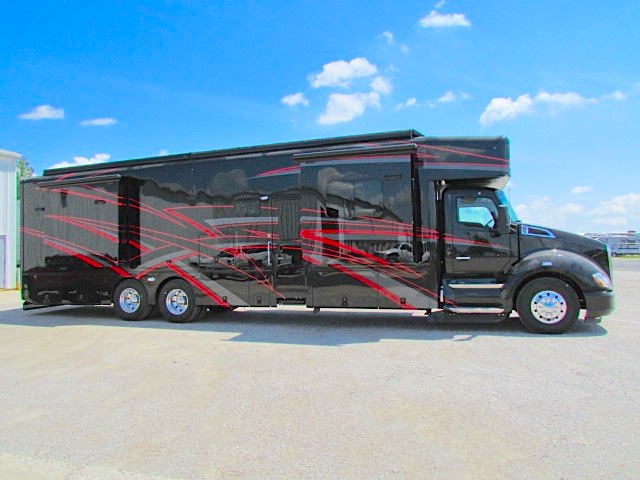
Truck Campers:
A truck camper is an RV that rests inside the bed of a pickup truck. Truck campers are small and usually have a bed and kitchen area. A few have a bathroom and shower. A truck camper can easily be offloaded from the truck to be a stand-alone camper when at an RV park.
Truck campers come in a variety of shapes and sizes with a variation of storage space. They can be hard sided or a combination of hard and soft sided like in a popup truck camper. Some also have slide outs too!
These types of RVs are popular for their versatility. They can go anywhere a pickup can go and where other, larger RVs cannot and they have the ability to tow boats, trailers, and other “toys.” Add a large holding tank, battery bank, solar panels, and generators and you have the perfect off-grid RV. And if you have a 4 wheel drive pickup truck you can go places most other RVs can’t.
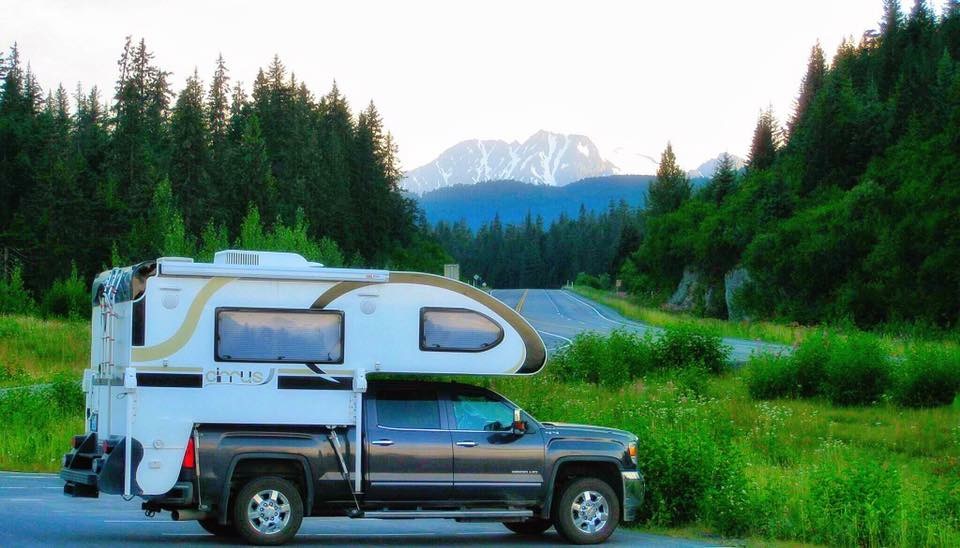
Skoolies:
Skoolies may be considered by some the red-headed stepchild of the RV world. For others, it is the perfect way to get the space for a large family or for tons of storage. Technically, a Skoolie is a renovated school bus, but some also refer to them as tiny homes. Depending on the amount of renovation, these can be beautiful transformations.
It might be helpful to know that there are RV parks out there that don’t allow skoolies. Skoolies can also be less expensive than some of the other options. A renovation can be anywhere from $20,000 to over $100,000 depending on the design and amenities. Like a motorhome, a skoolie is a drivable motorhome that doesn’t have to be towed, unlike some tiny homes, and you don’t need a special license to drive one.
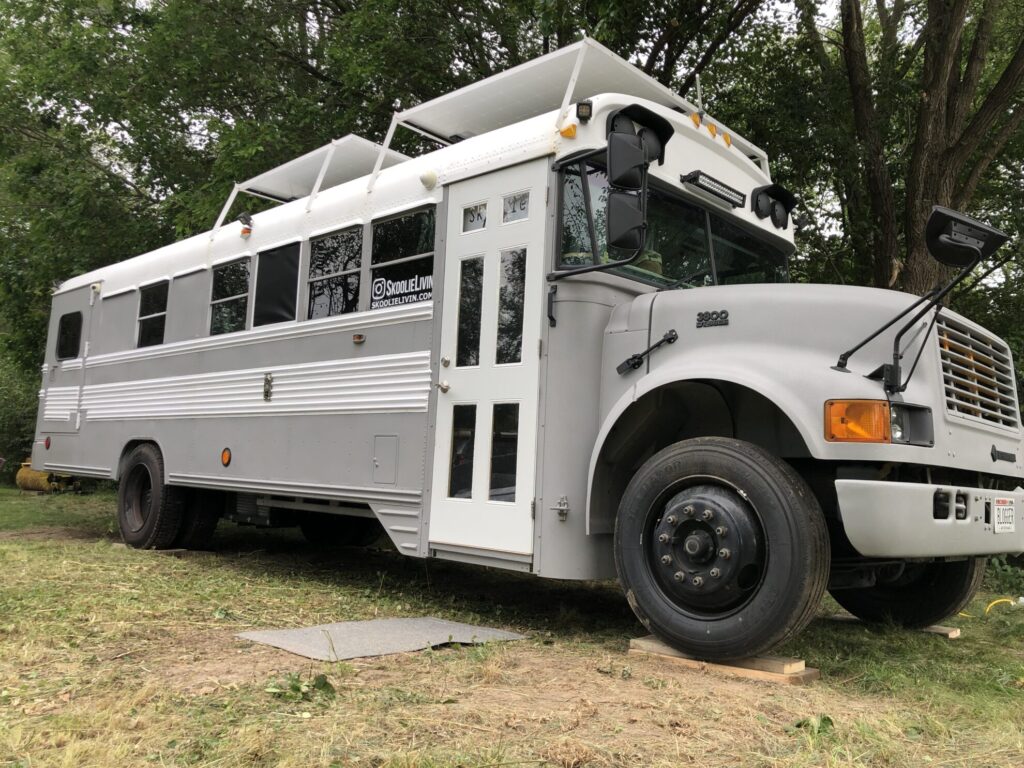
Travel Trailers:
A travel trailer, sometimes called a bumper-pull camper, is a non-motorized RV that is generally pulled while hitched to an SUV or pickup truck. These come in a variety of lengths and sizes. Travel trailers are hard-sided and usually have anywhere from zero to five slide-outs, depending on the size. These are a popular choice for people who want an RV that can fit their needs without breaking the bank.
Depending on their size, a travel trailer can cost anywhere from $10,000 to $50,000 or more. A small Airstream brand can run in the upper $50,000 range. A travel trailer can be set up at an RV park and you have your tow vehicle to site see and get around. If you have a Class A motorhome you will need to bring along a tow vehicle to get around.
These types of RVs generally have quite a bit of storage space and can sleep up to eight people. Travel trailers can be intimidating to tow and set up but once you get the hang of it, the process is not difficult.
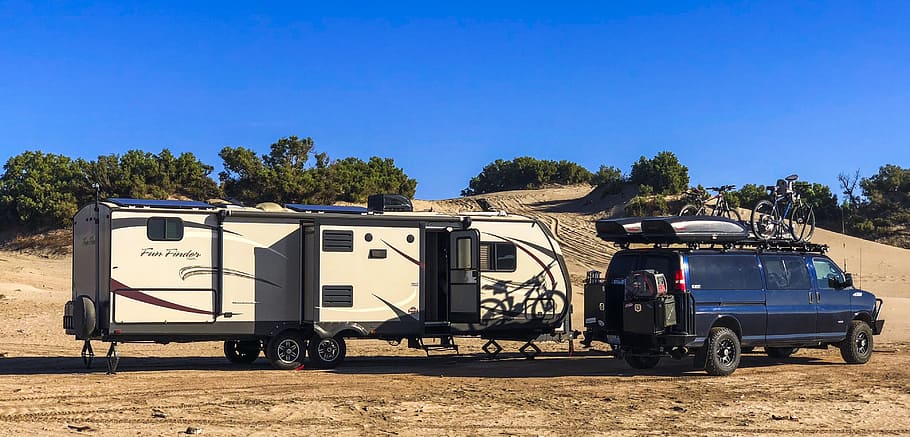
Fifth Wheel Trailers:
Like travel trailers, fifth wheel trailers, or simply fifth wheels, are pulled behind a pickup truck. However, the fifth wheel does not attach to the tow vehicle at the bumper but instead to a U-shaped coupling mounted on the cargo bed of the truck. A pin box on the front of the trailer locks onto the fifth wheel coupling on the truck.
5th wheel RVs have a great amount of storage and are stable to tow because the hitch centers the weight of the RV over the rear axle of the tow truck. These are also easy to back into a site because of the way the RV is attached. The bedroom in this type of RV is generally over the hitch but some models can use this space for a living area.
Fifth wheels generally have a number of slide-outs for extra room and storage. The toy hauler variety comes with extra space in the back for a golf cart or 4-wheeler. That space can also be used for living and sleeping areas. Like the travel trailer, once at the campsite, you can use your tow vehicle for getting around.
They are usually anywhere from 25-40 feet and can sleep up to nine. They are also taller than a travel trailer which is great for maximum headroom, but you also need to be aware of your height, as with any RV, for navigating tunnels, etc. on the road.
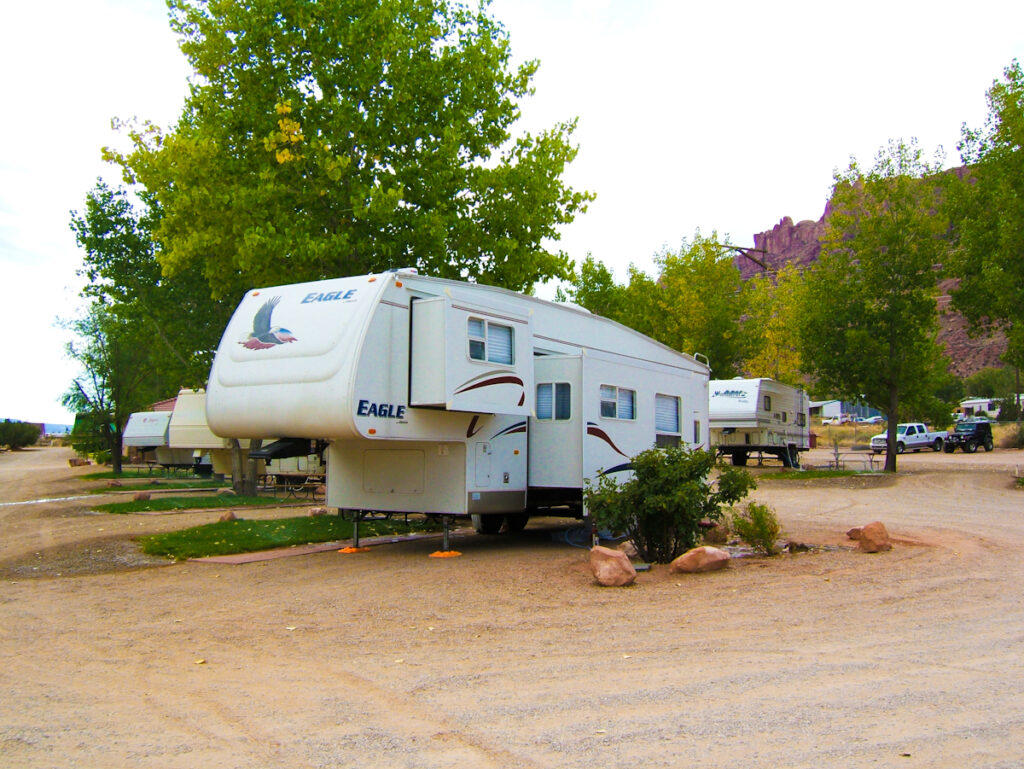
Popup Campers:
A popup camper is just what it sounds like. It’s a light, towable RV that collapses down for easy towing and storage. Sometimes these are called folding tent campers or tent trailers. The part of the camper that pops up is usually made of canvas while the bottom is a hard shell.
Popups come in various sizes. My husband and I had a fairly large one with a king bed on one end and a queen on the other. It managed two adults and four children just fine. While putting these up is not difficult, it does take some practice to get the process down.
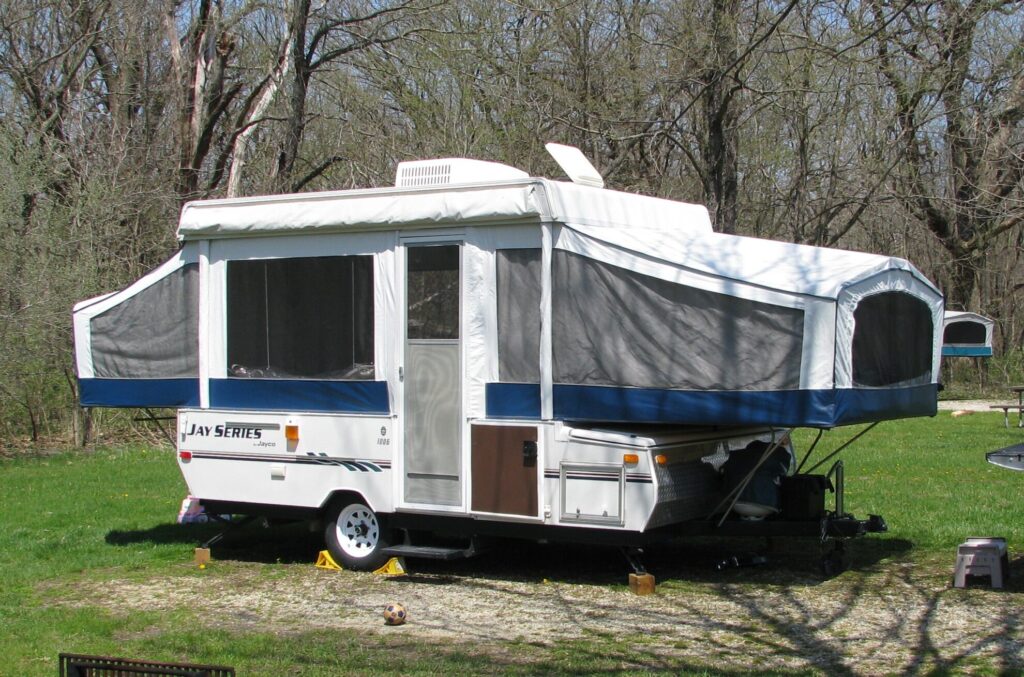
Destination Trailers:
A destination trailer, sometimes called a park model, might look like a regular bumper pull travel trailer but there are some differences. Destination trailers are designed for long stays and usually have residential style features such as larger appliances, real wood cabinets, sliding glass doors, and lots of windows. These amenities make them heavier than a normal RV travel trailer.
They are usually taller with seven foot ceilings. They are self-contained and can utilize power, water, and sewer hookups. They usually have one to two bedrooms or bunk beds. With all of this, they can still be towed to and from destinations with the proper truck and tow package. There are also park models that are similar to a mobile home. They don’t have tanks and must be hooked up to a city water and sewer system.
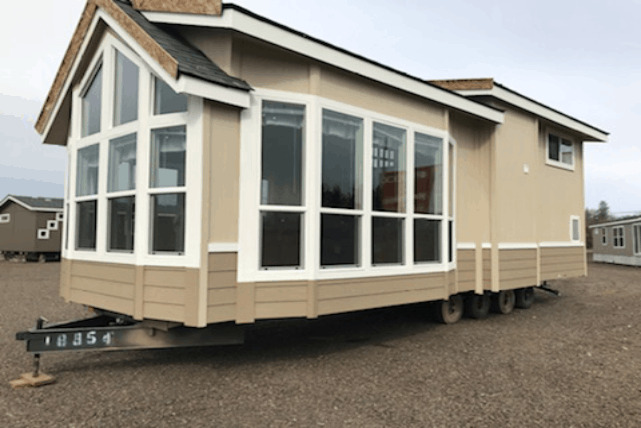
Related Questions Regarding Differences Between a Motorhome RV and a Camper?
1. Is a Mobile Home an RV?
A mobile home is not an RV. It does not have wheels and must be moved via a company that specializes in their transportation, usually at a cost of anywhere from $1,000 to $15,000. A mobile home also does not have tanks and must be hooked up to a septic system and city water and electricity.
2. Is a Tiny House Considered an RV?
A tiny home, in the strictest sense of the word, is considered an RV if they have wheels and can be moved. Most, like the destination trailers above, can be moved but are not meant to be moved often. They are usually built with heavier materials than an RV.
On a positive note, tiny homes look like a house, are generally better insulated than an RV, and are easily customized from the ground up. Tiny homes generally have tanks for water, sewage, etc. and some are a hybrid.
I parked near one like that for a season that was custom built but pulled like a fifth wheel. It was heavier than a normal RV, according to the owner, but served its purpose for them and was moved every six months or so as they did seasonal work.
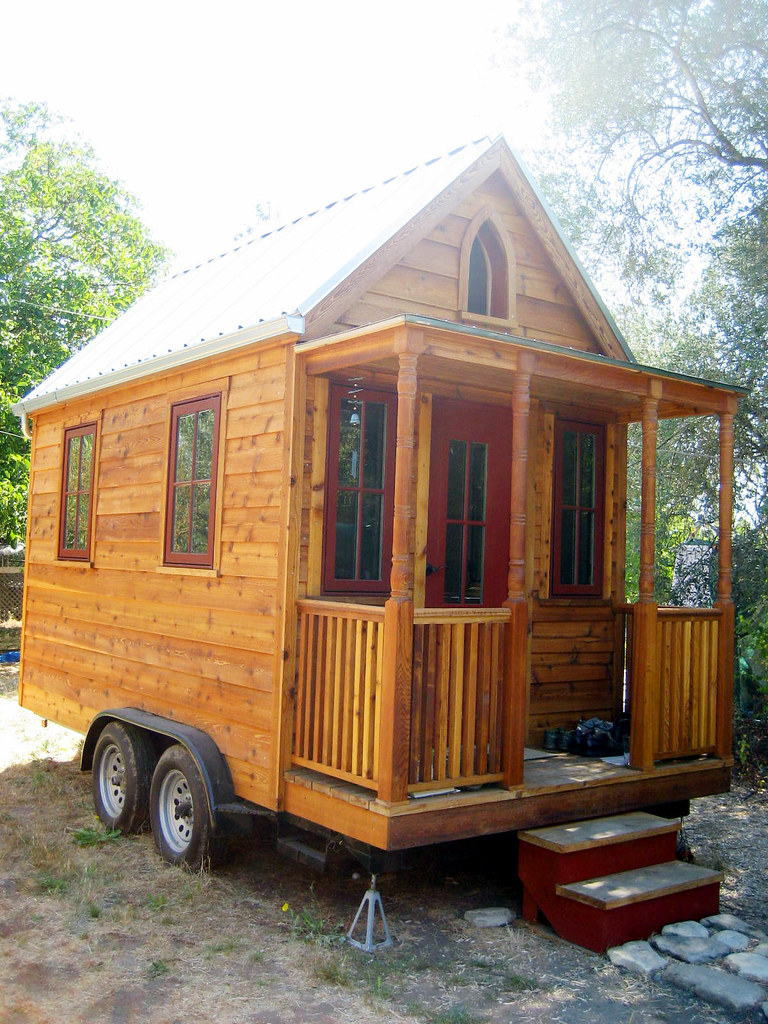
3. Is a Camper Van Considered an RV?
A camper van is considered an RV because it has wheels and can be moved from place to place, and has livable space.
Which is Best for You? Motorhome or Camper Trailer?
There are many differences Between a Motorhome, an RV and a Camper. And there are many factors that go into deciding what is best for you and your RV lifestyle. When making your decision you likely need to start with a budget. What type and size of RV can you afford?
The next question would be, what do you plan to do with your RV? Do you plan to live in it full time? Do you plan to spend time in it seasonally? Are you currently a weekend warrior? Are you planning to work camp and move every 5-6 months? What is your comfort level in driving or towing a large rig? Will you be in cold weather and need a four-season rig? The answers to all these questions will begin to narrow your focus on what type of RV to purchase.
You also will need to do some research. If you want to spend a lot of time in National Parks, you may find maximum length limits. Some RV parks have minimum length limits as well. Some don’t want rigs more than 10 years old or require pictures to prove that it’s in good shape.
That doesn’t mean you can’t purchase something used, just be aware of those limits. Weather will certainly be a factor if you are in your rig full time. Where will you be? You don’t want to freeze in the winter or have it be so hot that your air conditioners can’t keep up in the summer. My goal, as well as many full time RVers is to follow the weather.
I would research reviews on certain brands as well. Some brands are better built than others.
Once you have answered some of those questions, then go out and test drive, look at floor plans and make your dreams happen. Also, consider that your situation could change in a few years, including the financial ability to upgrade to something newer, bigger, or better. You don’t have to reach the top right away. You may love RVing so much you go from being a weekend warrior to selling all of your worldly possessions and going full time.
Related Reading:
– What Are RV Classes? – All Types and Styles Explained
– Gas vs. Diesel RVs – Which Motorhome is Best?
– Class A vs Class C Motorhome and How to Choose
– Fifth Wheel vs Class A Motorhome – Pros and Cons to Help You Choose Before You Buy
– Class C RV vs Travel Trailer
– Class C RV vs 5th Wheel – Which is Better and Why?
– Toy Hauler vs Travel Trailer – 19 Differences Explained
About the author…
Terri Nighswonger – Author and Full Time RVer
Terri Nighswonger and her husband Todd have been RVing and work camping for six years with their Cavalier King Charles Spaniel, Newton, and their Minnie Australian Shepherd, Remi.
In Addition to the RVBlogger team, Terri has written for RV Life and RV Camping Magazine and is always excited to talk about her passion for RVing and her knowledge and experience in work camping.
Writing is Terri’s passion, but she also loves hiking, kayaking, walking her dogs, and anything she can do outdoors.
They originate from the Midwest but plan to enjoy the West for a few years, wintering in Arizona and summering wherever the road may lead.



I have never been in either type of vehicle, but from what I can tell, a motorhome is much larger and has more features than a camper.